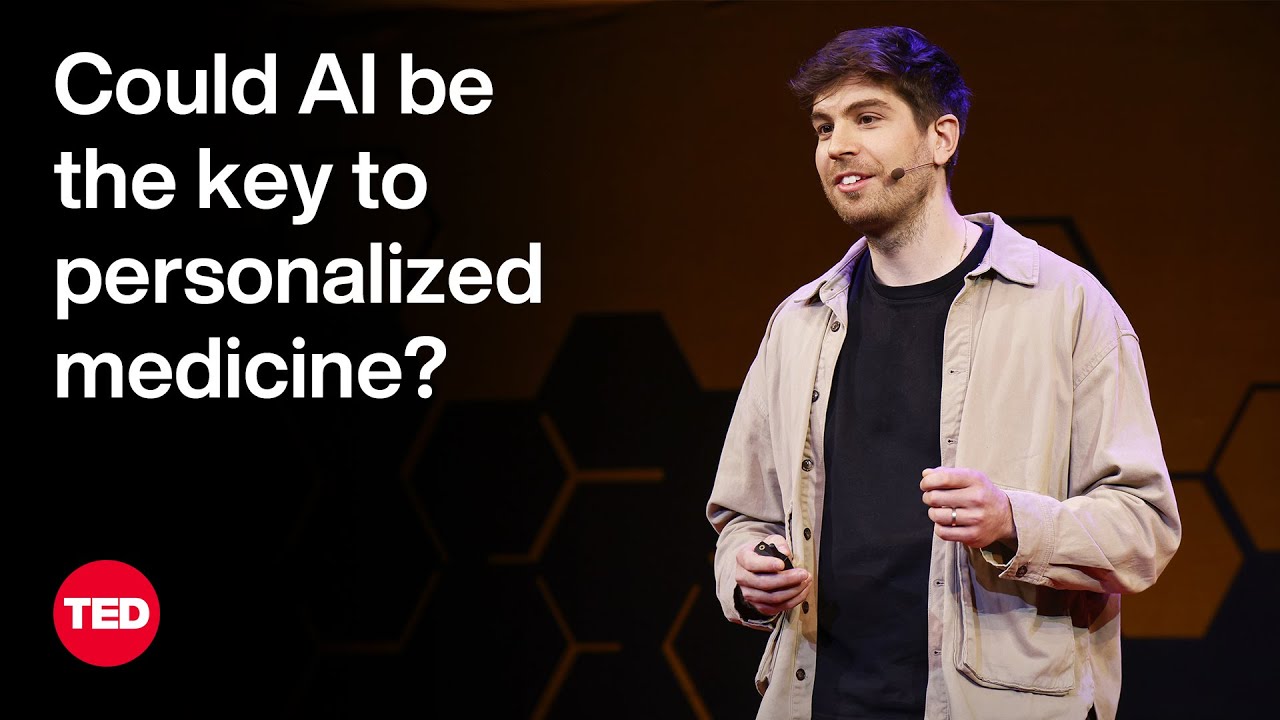In his TED talk, Max Jaderberg discusses how AI, exemplified by DeepMind’s AlphaFold, is revolutionizing scientific research by accurately predicting protein structures and saving billions of years of experimental work. He envisions a future where AI can autonomously design personalized drugs, significantly accelerating drug discovery and transforming medicine.
In the TED talk by Max Jaderberg, he reflects on his experience during his PhD, where he worked on neural networks and machine learning, contrasting it with the challenges faced by a friend in experimental protein research. Jaderberg highlights the significant breakthrough made by DeepMind’s AlphaFold, a neural network that accurately predicts protein structures, solving a long-standing challenge in biology. This advancement has reportedly saved over a billion years of research time, allowing scientists to focus on new frontiers in science rather than spending years on experimental lab work.
Jaderberg argues that the success of AlphaFold is not a one-time event but rather a glimpse into a new paradigm where AI can revolutionize various scientific fields. He emphasizes that the advancements in neural network architectures, combined with the increasing availability of data and computational power, will continue to drive breakthroughs in understanding complex biological systems. This new paradigm involves creating AI analogs of the real world, enabling researchers to experiment and discover new knowledge in a virtual environment.
The talk delves into the challenges of drug design, noting that the number of new drugs developed per billion dollars spent on research and development has been decreasing over time. Jaderberg points out that while AI capabilities have advanced significantly, the drug design process remains complex and costly. He introduces the concept of using AI to model biological systems, which can help overcome these challenges by providing a more efficient way to design new drugs.
Jaderberg explains how proteins, essential building blocks of life, can be modeled using AI to predict their 3D structures and interactions with other biomolecules. He describes the development of AlphaFold 3, which can model the interactions of various biomolecules with unprecedented accuracy. This allows researchers to rationally design drug molecules that can modulate protein functions, significantly speeding up the drug discovery process from months to mere seconds.
Finally, Jaderberg envisions a future where AI agents can autonomously design drugs tailored to individual patients’ unique protein mutations. He highlights the potential of this approach to revolutionize medicine by enabling personalized treatments for various diseases, including cancer. The talk concludes with a call to action for those in machine learning and technology to contribute to this new wave of scientific and technological advancements, emphasizing the transformative power of AI in driving progress across multiple fields.
